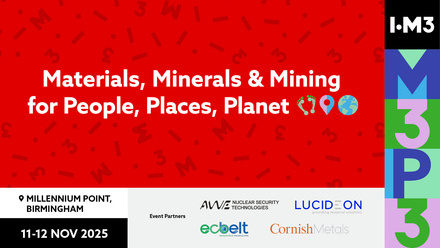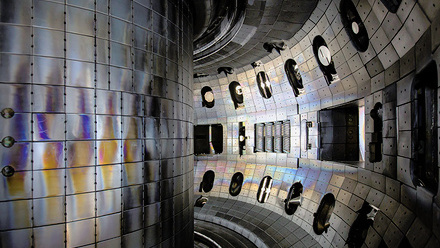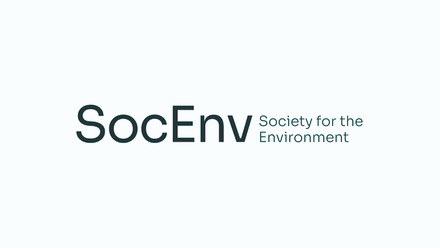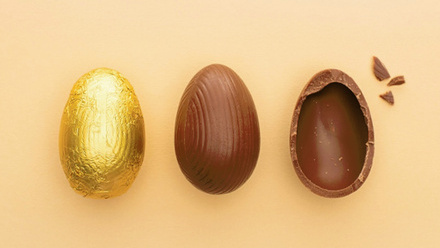A flying start
Dr Sanjoo Paddea MIMMM recently wrapped up the UK’s £10mln TransFIRe programme for the Foundation Industries
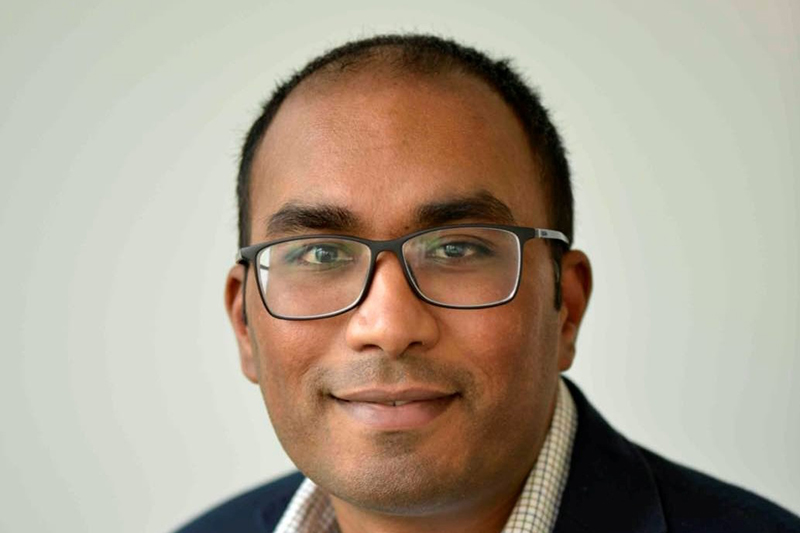
A local airport in Mauritius started Sanjoo Paddea’s journey into materials science. The island in the Indian Ocean was his childhood home.
'We lived literally just 10 minutes away from the airport, where we were hearing planes take off every now and then. It was just an everyday experience. I was sort of always fascinated by how something so big and heavy could actually fly. So that’s when my passion for science started.'
Although, he came from a non-science background, his father’s job as a policeman at the airport allowed him many opportunities to nurture his growing interest in aviation.
It led to him pursuing his first degree in Aerospace Engineering at the University of South Wales, UK.
His passion for aeroplanes soon developed into a passion for materials. The modules he was taking 'all came down to the materials that you’re using to ensure the safety of aircraft'.
He continues, 'Science isn’t just about understanding the world. It’s also about shaping the idea that scientific research can lead to better materials, for example, for more sustainable industries and even to safeguard lives. I think it’s quite fascinating.'
He shares, 'In one of the modules, we were studying gas turbine engines and hearing about the temperatures of the blades, thinking how those materials withstood such temperatures. I thought that was intriguing.'
Paddea shifted relatively early in his career from materials science research to more management-based work. He explains this change in trajectory happened by accident, after his PhD supervisor at the Open University pointed out 'I had a natural ability for management'.
'I actually thought about it very carefully and realised he was right. I don’t want to be focusing on research and writing papers. It was just not for me. I wanted to be working with industry, managing projects.'
His first role after the PhD was setting up and managing a business at the university, which he says exposed him to strategy planning and industry collaboration.
A course on entrepreneurial skills sparked development in leadership, stakeholder engagement, finances and project management.
It helped him hone skills in translating complex research into simple explanations, and he was particularly passionate about doing this in a way that allowed him to solve industry problems.
This led to him wanting 'to broaden my impact'. He stressed that while research is critical, 'facilitating that collaboration between academia and industry is just as important in driving meaningful change'.
Making a landing
As Business and Hub Manager at Cranfield University, he has acted as a bridge between academia and industry, such as by leading the £10mln TransFIRe programme, attracting 130 industry partners, steering 40 academics across 12 universities, and securing over £5mln in co-investments to drive sustainability and innovation in the UK’s Foundation Industries (FIs).
This required considerable leadership skills, an ability to manage stakeholders, while securing funding.
Getting the TransFIRe role was also an 'accident'. 'I was in China at the time. I was running a large centre of excellence for advanced materials over there…And I was coming to the end of my tenure, and I was looking for opportunities in the UK to come back to be with the family. So the keywords in my job search were materials and sustainability.
'At the time, I had no idea what the FIs were and I had to look it up a little bit and read a little bit, and I thought the role was a great opportunity to drive change,' playing to his strengths.
The 130 industry partners working within TransFIRe came from the six different FIs. Paddea enthuses, 'This was so fascinating, facilitating collaboration across these different sectors, ensuring the research that we were doing as academics was aligned with industry needs.'
The most important learning from TransFIRe was that collaboration is really the key to transforming these industries. 'Because the project highlighted that there were shared challenges across industry', such as energy efficiency, how you manage waste, etc.
They also learned the importance of 'balancing innovation with practicality'. In short, how researchers’ solutions need to be 'viable for industry adoption'.
Aligning diverse teams and making sure they are working in harmony requires 'the shift from just focusing on technical stuff to a broader and more holistic approach, communications as well. Talking to industry is not the same as talking to your fellow colleagues or your PhD supervisor', he asserts.
'Not everybody is comfortable talking to industry. They don’t know, what are the right questions to be asking industry'. A communication strength he feels helped with the project.
A highlight of the project for Paddea was 'seeing tangible impact…facilitating industrial symbiosis and demonstrating how circular economy models can actually work in practice…I think that’s just amazing.'
Upping energy efficiency and 'so reducing energy consumption and CO2 emissions' was also another tangible impact. 'I think the numbers that came out from the research were that we can reduce energy consumption by 20%. I think these are quite high. And even if we achieve a fraction of that, I think that would make a big difference to the economics and also for the environment'.
In terms of 'what’s left to do, I think we’ve all appreciated that TransFIRe did make significant strides in sustainability, energy efficiency and circular economy practices, but I think the next step really is scaling up those innovations'.
He expands, 'How can we embed the findings from the projects into industry practices, real-world applications?...How do we continue to develop the skills in the workforce that is required for the FIs?'
Some of the proposals call for a dedicated centre for doctoral training for the FIs. This 'would ensure that the research and innovation fostered by TransFIRe and other Transforming the Foundation Industries initiatives are translated into practical industry-related applications'.
He concludes, 'But I think there’s still a lot of work to be done in terms of attracting young people into careers in the FIs. They still think of it as a dirty job.'
Learning and growing
In a broader sense, Paddea says his greatest career achievement has been leading multiple industry projects. He gives Rolls-Royce as a past example. 'They had a concern about residual stresses in their turbine discs, and at the time, they didn’t know any techniques that could possibly measure that, and so finding a possible solution for them, putting that in practice and delivering high-quality results.'
His greatest challenge came from his work on TransFIRe. 'We were working with different sectors and academics, industry, government, balancing the needs and expectations of these multiple stakeholders from diverse groups, while ensuring that the project stayed on track. I think that was very challenging, and then aligning different priorities, ensuring clear communication was quite challenging.'
From these experiences he learnt to modify his promises in line with available resources. He says, 'because when talking to industry at the time, trying to attract them to be part of the TransFIRe project, you tend to promise a lot.' He says it is not just about saying 'yes to everything and then not having the resources to deliver'.
Prioritisation is key, and breaking those big topics into smaller chunks so a proof-of-concept can be completed in three to six months.
As of March this year, he is taking this learning to his new role as Programme Manager of the University of Cambridge’s Centre for Doctoral Training for Artificial Intelligence for the Study of Environmental Risk.
This will involve running large-scale programmes, communicating with stakeholders (students, industry partners, professional institutions and the public), organisation of events (e.g. the annual showcase, retreat, careers workshops and student symposium), and the organisation of new and existing educational and technical materials for the programme.
On the side, Paddea runs his own small business Stress-Space with a couple of colleagues. The firm measures residual stresses in complex structures. He certainly seems adept at keeping multiple plates spinning.
Dr Sanjoo Paddea MIMMM sits on the Leadership Team of the IOM3 Materials Processing and Manufacturing Group.


